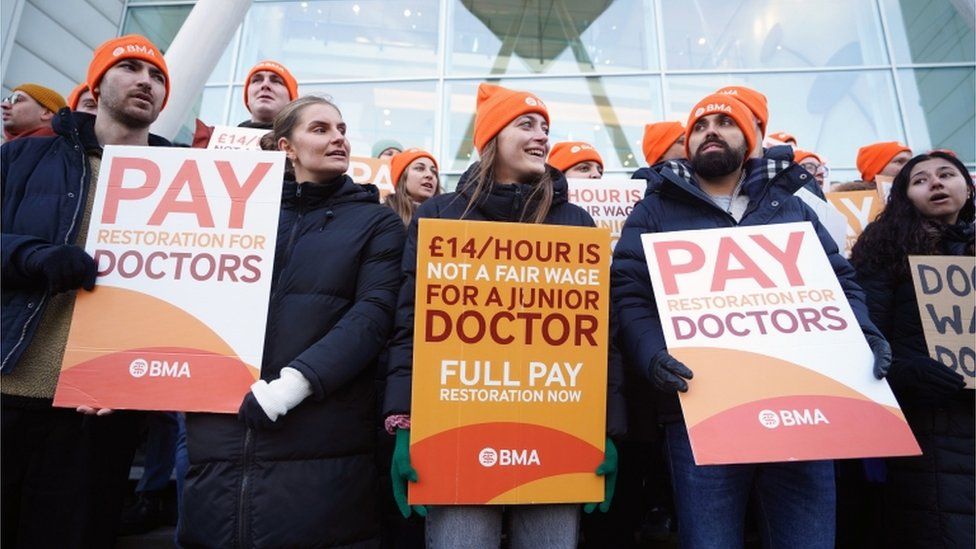Junior Doctors’ Strike: What You Need to Know About the Longest NHS Walkout
Introduction
The National Health Service (NHS) is currently facing its longest-ever strike as junior doctors participate in a six-day walkout. This strike, which is expected to involve thousands of junior doctors, comes after the breakdown of pay talks between the government and the British Medical Association (BMA). NHS bosses are concerned that routine services will be severely affected due to the strike.
Impact on Services
According to NHS England medical director Prof Sir Stephen Powis, this walkout poses significant challenges to the health service, as it coincides with a surge in respiratory illnesses and staff sickness. As a result, routine hospital services, including planned operations and check-ups, will be heavily disrupted. Some areas may even struggle to maintain all their A&E services, which raises concerns about urgent areas of cancer care and maternity services.
Advice for Patients
In light of the strike, NHS England advises patients in life-threatening emergencies to call 999 as usual, while those with non-emergency concerns should use the NHS 111 helpline. Patients with routine appointments are generally encouraged to attend unless specifically instructed otherwise. However, there may be some disruption to GP services as well, so it is advisable to check with your healthcare provider.
Previous Disruption and Costs
This is not the first time that the NHS has experienced strike action. In fact, junior doctors have already participated in 28 days of strikes during their ongoing pay dispute. Over the past year, more than 1.2 million appointments and treatments have been canceled due to industrial action, costing the NHS over £2 billion in planning, preparations, and cover expenses.
The Two Sides
The pay talks between the government and the BMA broke down when the BMA rejected an offer of a 3% pay rise, which would have been added to the nearly 9% increase that junior doctors received in April. The BMA argued that this was insufficient and demanded an additional 35% increase to compensate for below-inflation pay rises since 2008. Although the BMA stated that the increase could be phased in over several years, the government has yet to agree to these terms.
Conclusion
The longest strike in NHS history is currently underway as junior doctors protest against the breakdown of pay talks. This strike will have a significant impact on routine hospital services and is causing concern among NHS bosses. Patients are advised to follow the guidance provided by NHS England and consult with their healthcare providers for any specific concerns.
By Nick Triggle
Health correspondent
Image source: PA Media
Read More of this Story at www.bbc.com – 2024-01-03 13:20:00
Read More Latest News

